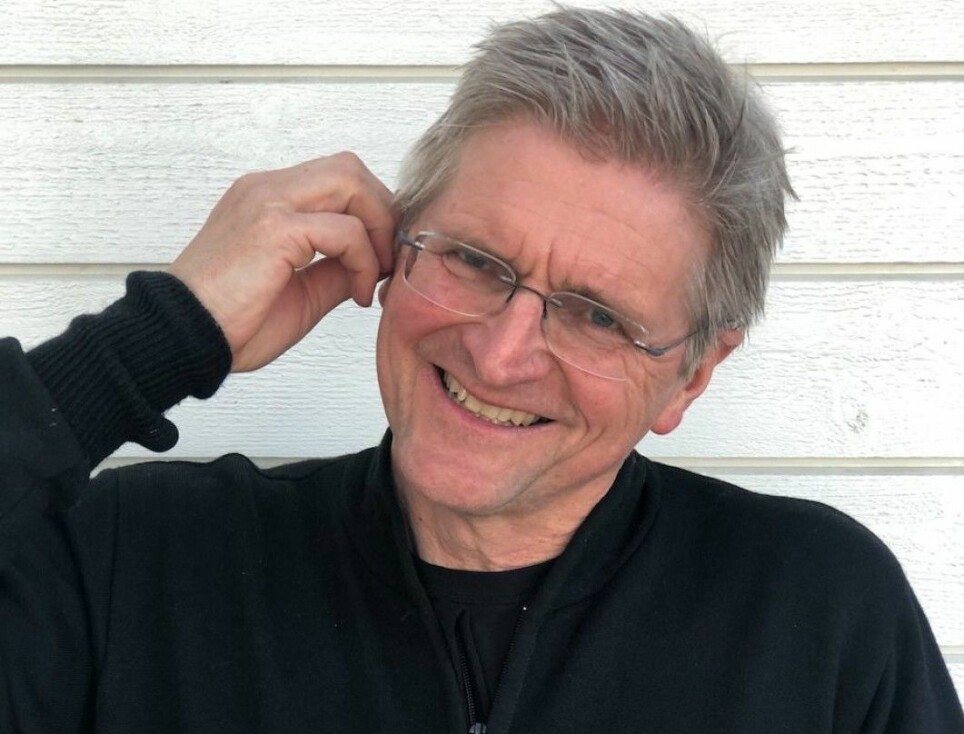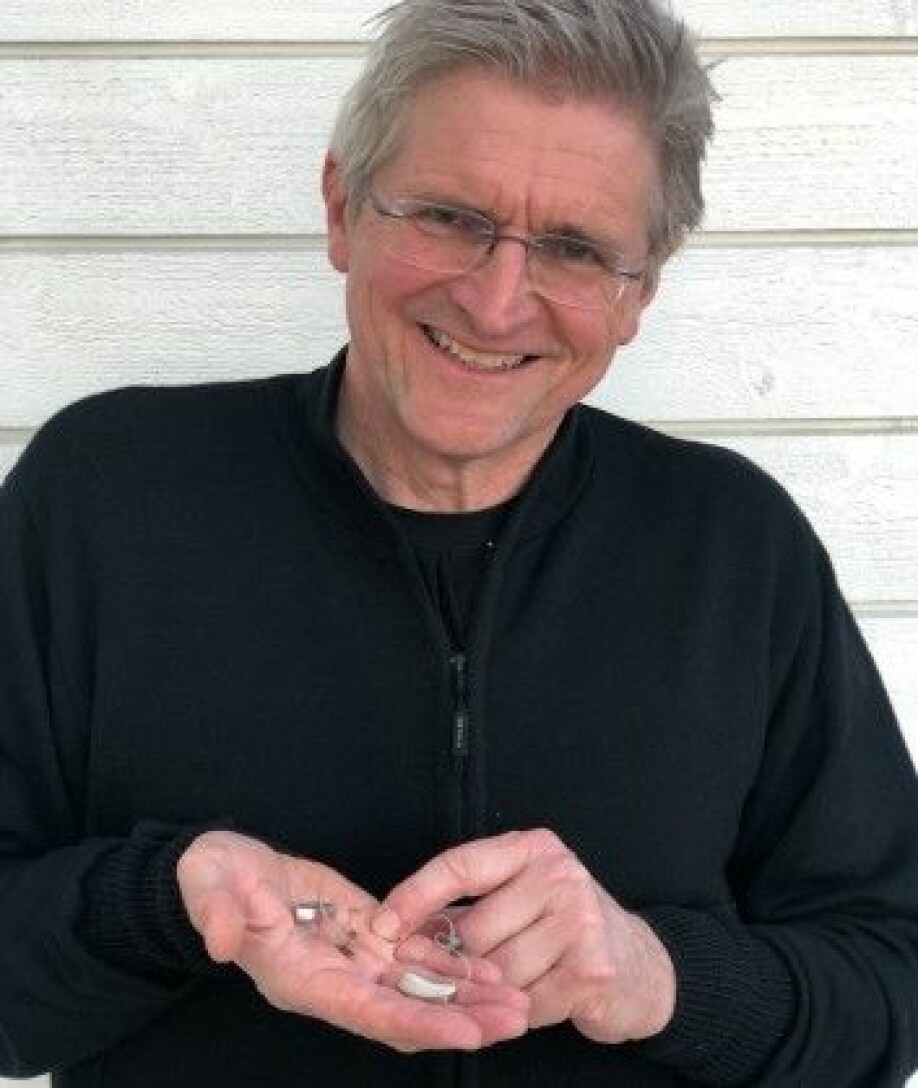
We have to think about dementia long before we get old, say researchers
A drug is now approved in the US, that can be used in the treatment of dementia. That's good news. But new treatments are not enough. We need to take action ourselves to avoid the disease, researchers says.
In June the US Food and Drug Administration approved a drug that can fight the underlying causes of Alzheimer's disease. This is the most common form of dementia.
The medicine reduces the level of beta-amyloid deposits in the brain. This protein forms plaque which researchers believe is a cause of dementia.
It is the first time in almost 20 years that a new medicine for Alzheimer's has been approved for use in the USA.
“It is expected that the drug will be approved in Europe, including Norway, within a few months,” says Steinar Madsen, the director of the Norwegian Medicines Agency.
Optimistic dementia researchers
Tormod Fladby and Geir Selbæk are the foremost researchers on dementia in Norway.
Both have great faith that important breakthroughs in the early diagnosis and treatment of dementia are at hand.
They recently summarized the status of dementia research at an event held by Norwegian Brain Council and the Nansen Neuroscience Network.
New study on diabetes medicine
Fladby believes this new drug could become important in dementia treatment. He is a professor at Oslo University Hospital and department head at Akershus University Hospital.
He heads an EU project in which they aim to identify factors that are the risk and disease mechanisms of Alzheimer's disease.
The researchers are now starting a new treatment study, using an established diabetes medicine to see if it can slow down cognitive impairment in this patient group.
Indirect evidence shows that the medicine, which contains the substance semaglutide and is approved for type 2 diabetes, can reduce the formation of plaque in the brain.

“We see a slower development of dementia in patients who take this medicine,” says Fladby.
Screening is key
Fladby and his research team have made significant progress in identifying biological markers in spinal fluid that indicate disease.
They also do brain exams with imaging techniques that can detect molecular and structural changes in the brain.
However, these methods are both complicated and expensive and thus are not readily available for screening.
Screening is the key to identifying people with early-stage brain disease, since there are no external or clearly observable signs of the disease.
The researchers are therefore working on developing blood sample tests.
Fladby's team and international research groups have made discoveries in recent years that offer grounds for optimism.
Medication alone can’t solve problem
New treatment is on the way, but this does not mean that the problem of dementia is solved.
The big challenge is the nature of the disease.
In most cases, dementia is not a sudden occurrence. Rather, it sneaks its way in gradually over many years.
“The patient often senses that something is wrong, even though cognitive tests or other people don’t detect any proglem,” says Fladby.
Diagnosis has to happen early
New treatment will place new demands on diagnosing dementia.
The two dementia researchers believe the diagnosis will need to be made earlier and with greater precision in order for the new treatment to work.
It won’t be possible to do anything if the cognitive decline has progressed too far. Therefore, it is very important to obtain the diagnosis early on in the disease.
With too few researchers available to study and diagnose dementia in Norway, early diagnosis is not currently standard practice.
“Specialists need to be trained in early diagnostics,” says Fladby.
“We’ve done this training at the university hospitals. Now the knowledge has to extend to the municipal health service,” he says.
Prevention and treatment
We will never be able to treat everyone with dementia.
“We have to think about prevention and treatment at the same time,” says Selbæk.
He is a professor at the University of Oslo and the head of research at the Norwegian National Advisory Unit on Ageing and Health.
Selbæk also sits on a commission for the scientific journal the Lancet. The commission has listed factors that help determine how much risk we have for developing dementia.
The commission first published a report in 2017 that was later updated in 2020.
Using a theoretical analysis, researchers have tried to calculate the proportion of dementia cases that could be prevented if a risk factor is changed or completely eliminated.
Twelve different risk factors
The Lancet commission has identified twelve different risk factors.
These are factors where they believe that there is sufficient valid knowledge to state that a clear connection with a risk of dementia exists.
The commission has also tried to find out how great the dementia risk is by the various factors.
They suggest that theoretically, it would be possible to prevent 40 percent of dementia cases if the risk factors were quantified.
“It’s a high number, and implementing it isn’t realistic. We can’t eliminate all the inadequate education, all the hearing loss, all the smoking and all the depression in the world, for example. But this still illustrates an important point: dementia can be influenced through preventive measures,” says Selbæk.
Educate people
Even though the number of people with dementia in the world is rising, the risk for each of us is declining.
Selbæk believes this statistic tells us that something positive has happened in society, especially in the western world.
One thing that has occurred during this time is that children have been attending school for several more years than they used to.
“A person who turns 90 today has significantly more education than a person who turned the same age 20 years ago. On a worldwide basis, the best thing we could do to reduce the incidence of dementia would be to ensure that everyone receives ten years of schooling,” says Selbæk.
Learning something new when you get older is a fine idea, but the most impactful learning happens first and foremost in adolescence.
Selbæk thinks basic education is a good investment to reduce dementia in society.
Researchers believe the reason education figures so strongly is that the brain is better equipped for dementia as we get older.
Get a hearing aid!
Individuals cannot do much about lost education in adolescence.
However, we can do several things to prevent dementia when we’re middle aged, according to the Lancet report.
We should make sure that our blood pressure doesn’t get too high, that we don’t drink too much alcohol or get too overweight, and that we avoid head injuries.
The most important thing, however, is perhaps the easiest to do: you should get a hearing aid when you start hearing less well.
Selbæk reports that he has done just that.
Hearing loss is the factor that has the strongest impact in terms of risk for dementia, far more than the other factors.

“As much as eight percent of dementia cases in the world could theoretically have been prevented if we remedied hearing loss. The calculation is based on how common this risk factor is and how strong the link with the risk of dementia is.”
New Norwegian study will refute or confirm
“There are few studies worldwide on the connection between hearing and dementia. But the ones that do exist are large and good. A new Norwegian study on the topic will be published in the next few months,” Selbæk says.
More than 50 000 people in the Trøndelag Health Study (HUNT) had their hearing measured in 1996. In 2017, the researchers studied the individuals from this group who had turned 70 years or older (around 8 000 individuals). They looked at whether hearing loss increases the risk of dementia.
“The study will either confirm or refute whether hearing loss is as important as the Lancet report suggests,” says Selbæk.
More theories on why
Why does poor hearing increase the risk of dementia?
Selbæk says several theories exist.
“One theory suggests that the brain is stimulated less when you hear poorly. It could also be that you spend so much cognitive energy just to hear that it’s at the expense of other cognitive processes.”
This could also be an indirect effect, he says.
If you don’t hear well, you may spend more time alone and receive less stimulation from being with others, making you more susceptible to depression and loneliness.
We know that both of these factors are independent risk factors for developing dementia late in life.
More people affected than believed
New research shows that more than 100 000 Norwegians are currently affected by dementia. This is far more than researchers have previously thought.
Researchers estimate that 30 years from now, in 2050, the number will have increased to 235 000.
The potential challenges for the health care system are enormous.
The district municipalities are seeing the largest increase in dementia cases. These outlying areas are also where fewer care workers are available.
“This is where the biggest challenge lies. We can’t simply continue doing more of the same things we’ve been doing. We need completely new ideas on how to solve this situation,” Selbæk says.
———































